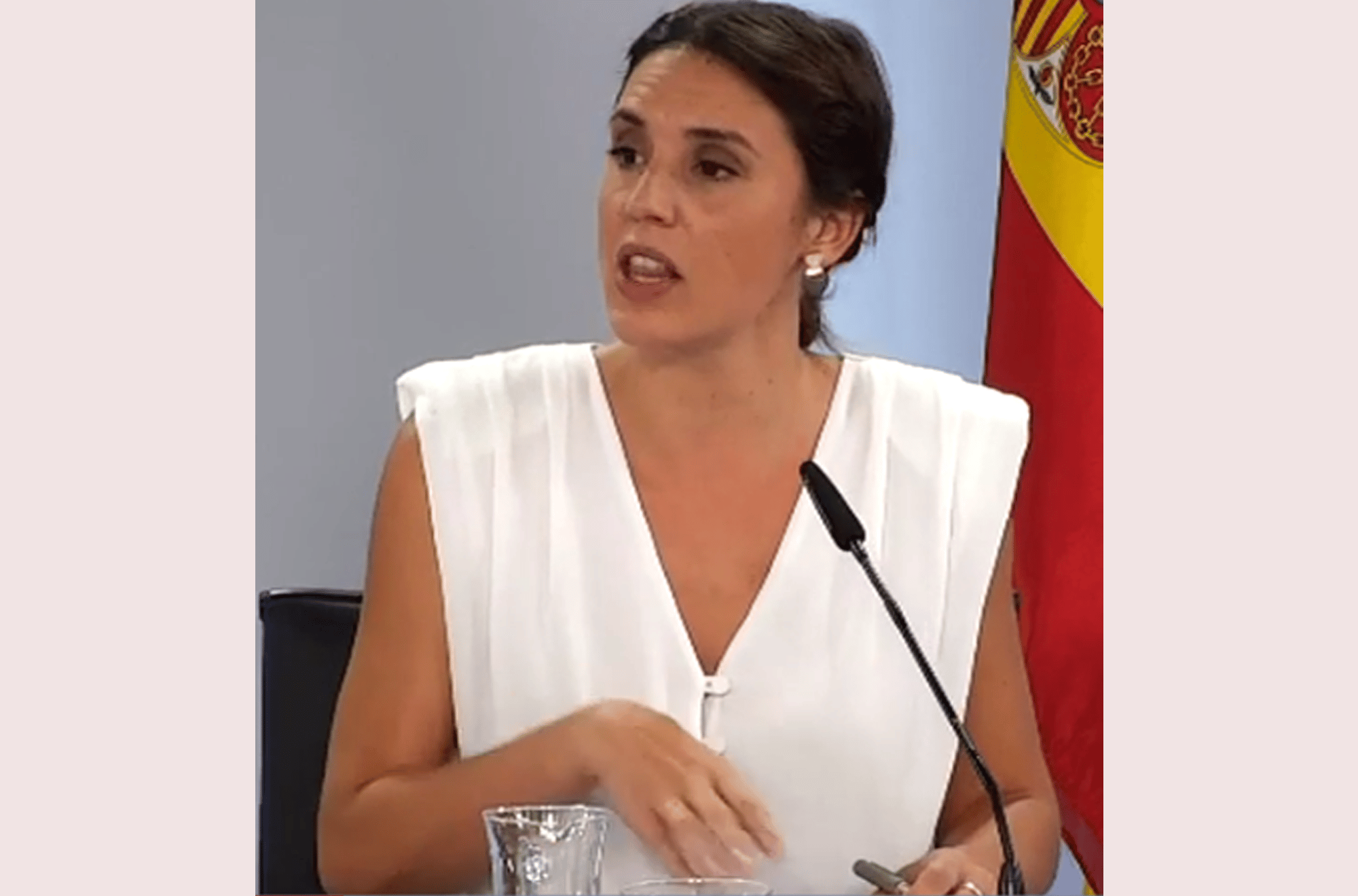
Irene Montero, Minister for Equality
Spain’s Cabinet has sent a draft law on abortion and other reproductive health and rights issues to the Parliament and says it hopes it will be approved and in force by the end of 2022. The text protects the right of all women to voluntarily end their pregnancy in the hospital closest to their home and guarantees that no woman has to go to work when suffering painful and disabling menstruation. They asked for it to be approved as a matter of urgency. It includes a register of doctors who are not prepared to carry out abortions so that they can exercise their right to conscientious objection, but at the same time obliges regional governments to ensure that in every hospital there is at least one doctor who will comply with women’s right to voluntarily end their pregnancy.
At present there are ways of blocking this, which explains why 85% of abortions are carried out in private clinics. For example, the 38 hospitals in Madrid do not carry out abortions, and in nine provinces, none have been carried out since abortion became legal in 1985.
Key messages for the Safe Abortion Campaign
The reform of the sexual and reproductive health law is practically closed. On Tuesday, 29 November 2022, the Equality Commission sent the final text with some modifications with respect to the initial text to the Plenary of Congress. The new law:
- Pushes for access to abortion in public health services and regulates conscientious objection of health professionals so that it does not become an obstacle to accessing abortion.
- Eliminates the three days of obligatory reflection before being able to have an abortion.
- Eliminates the obligation to receive an envelope with information on maternity assistance before having an abortion. It will only be given if the woman or the pregnant person requests it.
- Restores the right to have an abortion to minors under 16 and 17 years of age without parental consent. In addition, one of the accepted amendments establishes that minors 15 years of age or younger with discrepancy between themselves and those who must give consent can go to a judicial authority, which must resolve the case urgently (this urgency is the novelty of the amendment).
- Incorporates a special temporary incapacity after abortion. In addition, comprehensive care and specialised accompaniment must be guaranteed for those who have abortions. Accompaniment must be provided throughout, in particular, “psychological accompaniment”.
- Prevents objecting doctors from being part of committees that authorise abortions after the 22nd week.
- Includes articles on menstrual health; sex education, contraception (financing and distribution of contraceptives, free morning-after pill, co-responsibility for contraception); reinforcing respectful childbirth, pre-partum leave in the 39th week; and condemning forced abortion, sterilisation and contraception as violence against women.
- Includes articles highlighting that public authorities shall guarantee the effective dissemination of quality information on sexual and reproductive health and rights. This includes awareness-raising campaigns aimed at the entire population to promote co-responsibility for use of contraception, the elimination of gender stereotypes in the area of sexual relations, the promotion of reproductive rights with special emphasis on voluntary termination of pregnancy, pregnancy, childbirth and puerperium, and the promotion of menstrual health in the different stages of life.
This is the first law in Europe that will include disabling menstruation as a reason to sign off sick from work, with no minimum contribution period and no limit to the number of days. “No more having to go to work in great pain. Periods will no longer be taboo,” said Irene Montero, the Minister for Equality.
The draft law also includes paid antenatal leave from the 39th week of pregnancy and guarantees the right to paid convalescence for anyone who has an abortion or miscarriage. It will also give girls aged 16 and 17 the right to end a pregnancy without needing parental permission.
SOURCE: SURinEnglish, by Alfonso Torices, 29 November 2022 + PHOTO by Efe ; El Diario, by Martha Borraz, 29 November 2022 (shared by Women’s Link Worldwide in Spain)
+++
We did it! The Spanish Supreme Court recognised for the first time that information about abortion on the Internet is constitutionally protected by the right to information
The case, brought by Women’s Link Worldwide in Spain, on behalf of Women on Web, sets an important precedent for protecting access to accurate, evidence-based, and easy-to-read information about abortion and sexual and reproductive health.
In early 2020, Spain blocked Women on Web’s website, an organisation that provides information on sexual health and reproductive rights and access to safe abortion through online services. This left many people unable to attain information on how to access a safe abortion in Spain, especially poor, rural and migrant women who had turned to Women on Web in search of information they could not find elsewhere.
Women’s Link filed a lawsuit to defend women’s right to access vital information related to their health, and the Spanish Supreme Court agreed. They ordered the almost complete unblocking of the website!
Women’s Link will now work with our partners in other countries around the world to use this new case law to protect access to information about abortion, especially where activists and organisations that help people access safe abortion are still restricted and persecuted.
Women’s Link says: “We succeeded in creating this important precedent at a pivotal moment where misinformation about abortion is rampant and sexual and reproductive rights are constantly under attack. This win will help women and gender diverse people to be better able to access reliable information and make decisions about their own bodies.”
SOURCE: Women’s Link Worldwide, E-mails: 1 December, 7 December 2022



